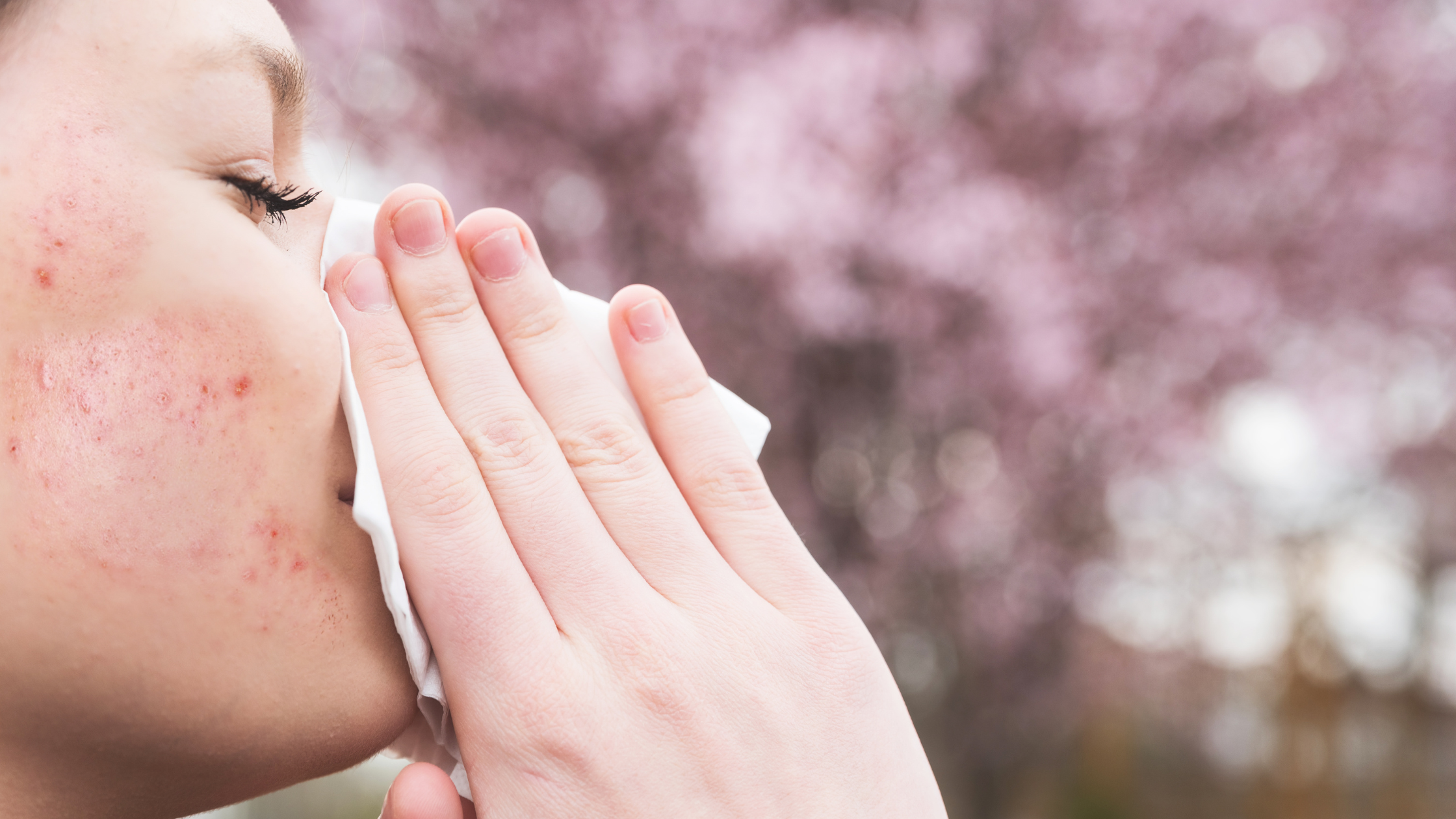The Surprising Connection Between Seasonal Allergies and Your Skin

Spring is finally here, but for many, it brings more than just blooming flowers and chirping birds. Seasonal allergies, with their relentless sneezing, itchy eyes, and runny noses, can turn this joyous season into a struggle. Your skin, too, can suffer the consequences of an overactive immune system during allergy season. In this article, we’ll dive into the connection between seasonal allergies and your skin, as well as tips to help fight off allergy season.
Inflammation on the inside, irritation on the outside
When your body encounters allergens like pollen, dust mites, or mold, its immune system kicks into overdrive, releasing histamines – chemicals meant to fight off the perceived threat. While this reaction helps manage allergy symptoms like sneezing and watery eyes, it can also trigger inflammation throughout the body, including your skin. This inflammation can manifest in various ways, leading to several skin issues:
-
Eczema flare-ups: If you already have eczema, seasonal allergies can trigger flare-ups, causing itchy, red, and inflamed patches of skin.
-
Hives: These raised, itchy welts can erupt anywhere on the body due to an allergic reaction, including exposure to airborne allergens.
-
Contact dermatitis: Scratching itchy eyes or rubbing a runny nose can irritate the delicate skin around your face, leading to redness, dryness, and even cracking.
-
Increased sensitivity: The overall inflammation caused by allergies can make your skin more sensitive to external irritants like harsh soaps, fragrances, or even sunlight.
There are also indirect impacts of allergies on your skin, including:
-
Sleep deprivation: Allergy-induced symptoms like nasal congestion and coughing can disrupt your sleep, which in turn can negatively impact your skin's health and healing processes. Research suggests that sleep deprivation can lead to increased inflammation and slower skin barrier repair.
-
Stress: Dealing with constant itchiness and discomfort can take a toll on your mental well-being, triggering stress hormones that can exacerbate skin issues. Chronic stress has been linked to increased inflammation and worsened skin conditions like eczema and psoriasis.
Tips for managing allergy-related skin problems:
As you navigate through allergy-related skin problems, it's essential to adopt strategies that not only alleviate symptoms but also promote skin health. Here are some tips to help you manage allergy-related skin issues effectively:
-
Consult your doctor: Discuss your concerns with a doctor to understand treatment options for both your allergies and skin issues.
-
Moisturize regularly: Use fragrance-free, gentle moisturizers to soothe and protect your skin barrier.
-
Avoid scratching: Resist the urge to scratch, as it can worsen inflammation and break the skin, potentially leading to infection.
-
Use cool compresses: Apply cool compresses to itchy areas to reduce inflammation and provide temporary relief.
-
Consider air purifiers: Air purifiers with HEPA filters help reduce indoor allergens.
-
Try dietary changes: Some experts suggest incorporating anti-inflammatory foods like fruits, vegetables, and omega-3 fatty acids into your diet. While more research is needed, some studies suggest these dietary changes may offer benefits for managing inflammation and skin health.
Remember: Everyone experiences allergies differently, and the impact on your skin can vary. If you struggle with allergy-related skin issues, consult a dermatologist for personalized guidance and treatment options. By understanding the connection between seasonal allergies and your skin, you can take proactive steps to manage both and enjoy a more comfortable and radiant spring season.
Using custom-formulated products can help you bring out the best in your skin if you struggle with allergies. By taking Qyral’s quiz, we can determine the best products for your skin’s unique needs to achieve your goals.
The information in this blog post is intended for educational purposes only and is meant to offer general guidance and information. It does NOT offer medical advice or medical treatment, does NOT constitute the practice of medicine, and should NOT be used as a replacement for licensed medical instruction.